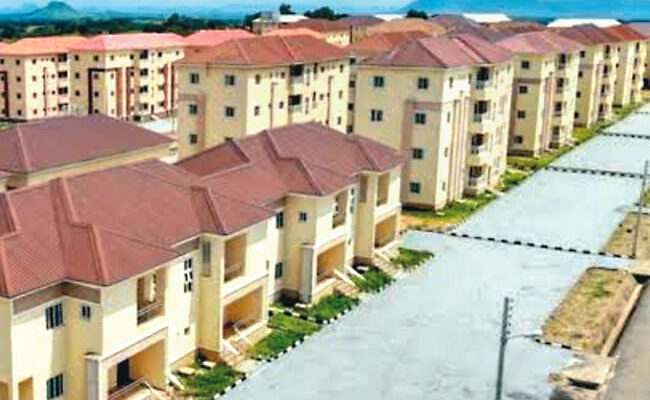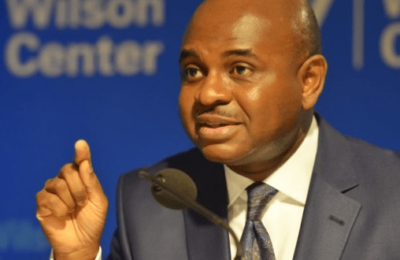

Few days to May 29, 2023, one of the built environment professionals has set agenda for the incoming president in order to enhance real estate development, provision of affordable housing and promotion economic growth. DAYO AYEYEMI reports.
IN another seven days, the president-elect, Asiwaju Bola Ahmed Tinubu will assume office and take full responsibility as the President of Nigeria.
Being a private person, businessman, experienced former state’s chief executive and legislator, Nigerians expect visible dividends of democracy hinged on good governance during his tenure.

They want him to revamp Nigeria’s economy promote adequate security, encourage Foreign Direct Investment (FDI) and private sector to thrive, and provide employment for the teeming young Nigerians in need of jobs, among others.
As the stage is set for Tinubu’s inauguration on, May 29, 2023, operators in various sectors of the economy have not failed in their duty to set agenda for the incoming president.
Operators in the real estate sector are not left behind in the agenda setting for total turnaround of their industry and the country.

It is on this note that the Principal Partner, Ubosi Eleh and Co, Mr Chudi Ubosi, is tasking the incoming president to promote stable economy, security and infrastructure in order to encourage investors to the country.

According to him, the incoming president has a lot to do; pointing out that real estate development would need stable economy, security and infrastructure to promote growth.
Real estate contributes 5.64 per cent to the Nigeria Gross Domestic Products (GDP) in 2022.
Speaking virtually at a seminar with the theme: “May 29,2023 – Setting the Real Estate Agenda for the New Government”, Ubosi urged the incoming president to review some of the laws and policies militating against the promotion of real estate and affordable housing in the country.
He urged the incoming president to consider the review of the Land Use Act and Land and Tenant Law in Nigeria.
He also wants the government to consider infrastructure requirements, long-term affordable mortgage, continued research in cheaper local building materials and accurate data for the sector.
The renowned estate surveying and valuation practitioner argued that with the present realities, the Land Use Act 1979 could no longer meet the aspirations of Nigerians, hence the need to make changes in the provisions of the law.
Going with the section one of the law, Ubosi, said that land acquisition should be eased for Nigerians, adding that the requirements for Government Consent as stipulated by the law during land purchase should be expunged.
“Land purchase–Government Consent not needed. Compensation should be fair value.
“Access to land title and requirements should be to enable Nigerian to have access to registered title for their lands,” he said.
Lack of title on land, he is of the opinion, results in dead capital.
According to him, titled land could be collateralised and the funds used for production.
“Titled land will ease real estate transactions and reduce frauds.
“Amendments will generally increase housing stock and help reduce the deficit.
“It is this constraint that has resulted in less than 10 percent of our land mass not having any formal title but traditional holdings,” Ubosi said.
While urging the incoming president to review the Landlord and Tenant Laws of Nigeria, he pointed out that one of the biggest disincentives in real estate investments was the law governing landlords and tenants’ relationships.
According to him, the laws were lopsided in favour of the tenants coupled with the Nigeria’s congested court, which have made property and rent recovery a nightmare.
“Many states have enacted their states laws on tenancies,but they’re still not enough,” he said.
Infrastructure requirements
The real estate expert urged the incoming president to focus on infrastructure and services, roads, electricity, railways and sea transportation.
This, he said will stem urban migration currently at 3.39 percent annually, and reduce pressure on urban housing which will reduce cost of accommodation.
“Nigeria is not doing badly at 30 percent of total roads paved. But remember our land size 923,000sq kms. He should focus on infrastructure and services, roads, electricity, railways,sea transportation,” the expert said.
Ubosi emphasised that the creation of an enabling economic environment would result in long-term affordable mortgage.
According to him, as stable economy encourages savings, this would provide the long-term pool of funds for mortgages.
“Let us remember that 95 percent of monies in the banks are call money,” he said.
On the needs for continued research into cheaper local building,he said that data have indicated that the average cost of building a four-bedroom house of gross floor area 275 square metres (m2) as at 2022 December was N58.8 mllion.
Due to high cost, Ubosi said that cheaper house with local materials is needed.
He said “The Nigerian Building and Road Research Institute(NBRRI) is doing a fair job in the material area but more need to be done. Research results should be made public.”
The real estate expert wants accurate housing data in the country.
Without data, he argued that Nigerians would continue to wallow in the dark.
“The reason it seems that, so far we have tried is because there is a backlog of excess demand. Accurate data is needed, he said.
Stating the importance data, he said it enabled planning, zoning and the production of incentives to ensure that developers focus on needed areas and housing types.
Currently, Nigerian population stands at 223 millon According to 2022 United Nations’ estimates.
Besides, Nigeria has 923,000 square kilometres in land size, while less than 10 percent is titled.
The nation housing stock stands at 10.71 million, while housing deficit stands between 17million and 22 million.
To bridge the nation housing deficit, Nigeria needs to produce 700,000 units annually for next 20 years.
Currently, annual production of houses nationwide is less than 10,000.
Property purchase is virtually 100 percents cash compared to other countries.
Average house price in most urban areas is between N30 million and N80 million.
Urban population amounts 52.75 percent with annual growth in urban population stands at 3.39 percent (2021–United Nations).
READ ALSO FROM NIGERIAN TRIBUNE








